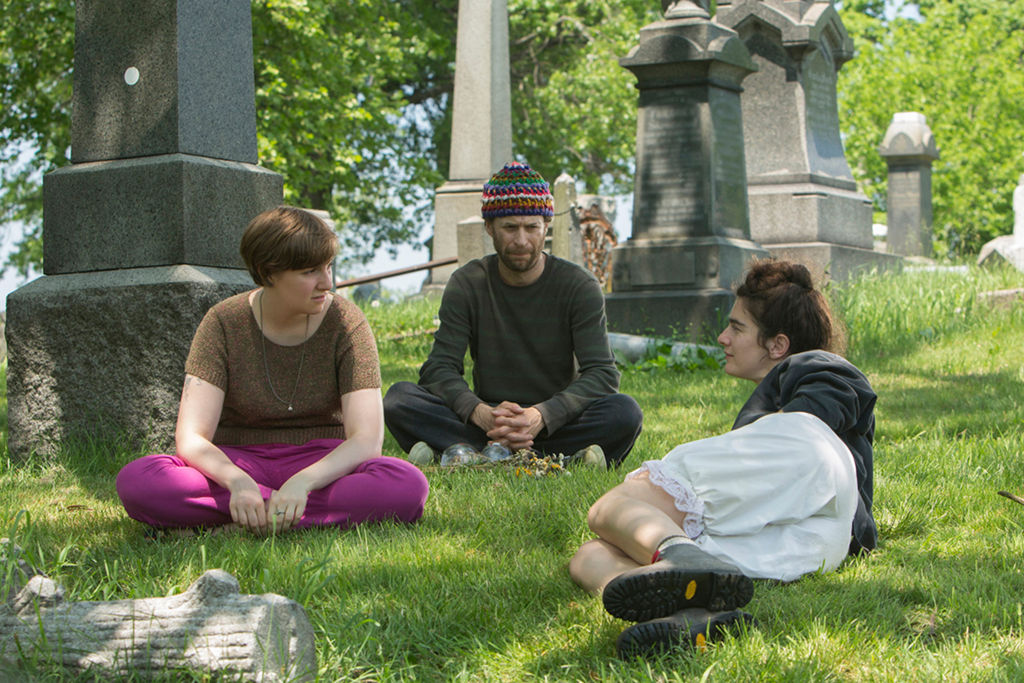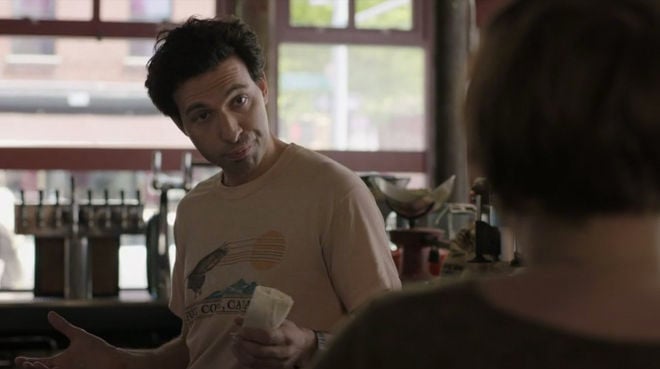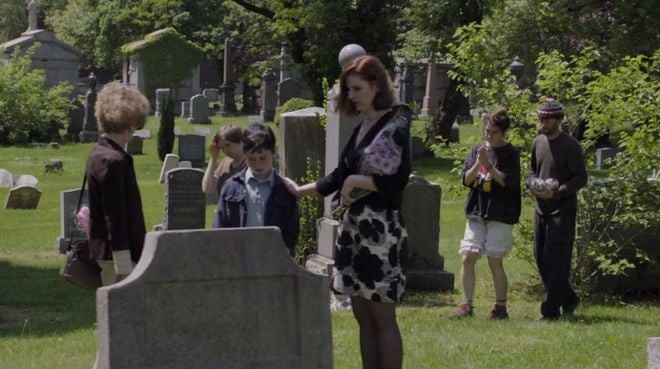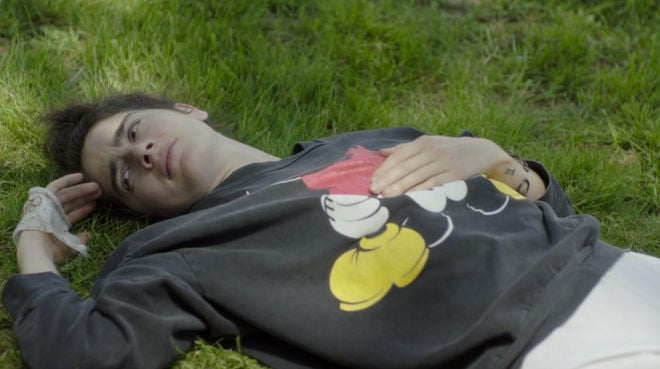Girls Recap: Graveyards, Funerals, Death And Dying
How does a show like Girls deal with a subject like death? "It's something that happens. It's like jury duty or, you know, floods."

This is a recap. That means spoilers.
–
There’s a story about Laurence Olivier, probably apocryphal: upon being told of his father’s death, he immediately turned to a nearby mirror and stared at his reflection, so that he could know the face of a man who has just learned his father is dead.
The subtext is that such presence of mind in that moment is the mark of either a man who is so devoted to his art that he can put aside emotion in service of it, or a man whose sociopathic devotion to his art stops him from experiencing real human moments in the proper way. Either way, and true or not, the story serves to bolster the image of Olivier as a genius, an artist so great he is somehow immune, if not to the slings and arrows of outrageous fortune, at least to the petty whims of dumb human feelings.
The slings and arrows are unavoidable. You can’t control the external forces in your life: some days you will wake up and find yourself face-down in a river, suddenly without a mentor, or a laughing stock on YouTube. And you can’t carefully hone your feelings about what happens to you or to people around you, shaping them into an acceptable level of anger or shock or resentment. You can, of course, control what vibes you put out into the world, to a certain degree: tamp down the indignation, dial up the sympathy, think of calm blue oceans and other people’s perspectives and all that shit, and get on with things. That’s a skill, and most people aren’t born with it. It’s called learning to deal. And, to paraphrase a great philosopher, how DOES one deal? When one doesn’t even know oneself, or what it is one feels?
[Spoiler: Marnie’s YouTube woes are solved when Jennifer Love Hewitt issues here with a takedown notice for copyright infringement.]
For most of this episode — watching Hannah react to her editor’s death, then react to people’s reactions to her reaction — I had more sympathy for her than I have all season. She appreciated David’s attention, support and professional investment in her, but she didn’t seem to quite like him as a person; when he sniped at her for not inviting him to her party, she looked almost pitying, as though she had a better handle on their relationship in that moment than he did.
When you’ve never been to a funeral, or experienced the sudden excision of a person you loved from your life, or watched someone grieve, death is still an abstraction. Once you’ve experienced it, you have a better grasp on what it means when someone dies, the horror, the shock, the existential hand-wringing that only seems to dissipate when you’re 90 and used to it.
Hannah says she’s never dealt with death before, and so the loss of the ebook is more real to her than the loss of the person providing that opportunity — but when she tries to talk about that, Adam tells her that’s the wrong reaction. A person is gone, he’s saying. Imagine if it were you? Imagine if it were me? She can’t. She doesn’t have the mental language for it yet.

I’ll have my fat-free muffin of sociopathic detachment with the butter of sarcastic judgment, please.
So she spends the episode trying on different Grief Hats. She tells Ray she feels nothing; but the more emotionally mature Ray (whose own beloved mentor is dying, don’t forget) feels the reverberations of fate in the knowledge that the Reaper has tapped someone who recently punched him in the face and hurled him across a room into a small table — and he’s shocked that Hannah doesn’t feel a ripple. She and Laird the Addict and Caroline (still with her hand bandaged) go literally frolicking through a cemetery in a montage. They shuffle smirking past a grieving family at a grave. Death, where is thy sting, huh?
At the end of the episode, Hannah tells Adam that she’s processing her feelings, and poaches Caroline’s tearjerker Cousin Margaret story – to make the tears come, to make herself feel better, to make him feel better by pretending to feel worse? Because “flighty lit-prick face-down in the Hudson” is too random, so here’s a little tragedy with a neat ending?
Season-three-Hannah, while being a bit more self-aware than she was before, has a need to understand life via narrative resonance: road trips, birthdays and death must all have Significance, or she’s unsure how to react to them. She’s a writer because it helps her process being a person; but if she feels like less of a writer, she feels less like herself. She’s now fabricating an emotional response because her actual reaction wasn’t satisfying for Adam, putting a story where she thinks real feelings should be — lying to him using a tale she stole from his lying sister. It might make Hannah seem colder and more callous to us than her authentic reaction did, but Adam seems to relax, reassured by her tears.
Girls is not big on telegraphing story arcs, so Hannah’s lie might not come back to haunt her — but imagine if Adam found out that Hannah stole a tragic story to seem more normal to him? It echoes the awfulness of Jessa’s realisation: that her favourite friend ever would rather Jessa think she was dead than remain in her life. Death is a big thing to lie about.
In a way, this Death Episode is actually about the tension between selfishness and connection, between numbness and letting your dumb human feelings take you where they will. The latter option is a more complicated one when your emotions and your brain have betrayed you to the extent that Hannah and Caroline’s have — Adam’s sister refers to life off her medication as “the rollercoaster”, and says her meds made her “feel less”. “See, that’s really not good for a writer,” says Hannah. “Yeah, but it’s really good for a person,” says Caroline. As if it’s an either-or — as if to feed one, Hannah has to starve the other.
Adam is trying to feed Hannah the person, with love and dumb human feelings (he even makes tree-blindness sound romantic); but it was David who fed Hannah-the-writer, and now she’s not sure where her next meal is coming from.
–
Girls season three screens on Monday nights on Showcase.
–
Caitlin Welsh is a freelance writer. She has written for The BRAG, Mess + Noise, FasterLouder, Cosmopolitan, TheVine, Beat, dB, X-Press, and Moshcam.
Follow her Girls recaps here.

